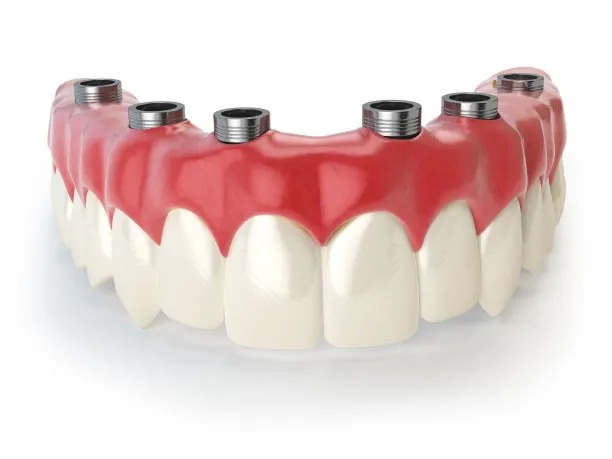Summary: This article provides essential guidelines for ensuring a successful dental implantation procedure while minimizing the associated risks and complications. It discusses the importance of comprehensive patient evaluation, meticulous planning, effective surgical techniques, and proper post-operative care. Each subsection highlights vital aspects that dental professionals and patients should consider to enhance surgical outcomes and ensure long-term success. By adhering to these guidelines, dental practitioners can foster optimal healing and reduce the likelihood of adverse events, leading to a smoother recovery process for patients undergoing dental implant procedures.
1. Comprehensive Patient Evaluation is Crucial

A thorough patient evaluation forms the cornerstone of a successful dental implantation procedure. Dentists must conduct an exhaustive medical history review to identify any contraindications such as uncontrolled diabetes or autoimmune disorders. This initial assessment helps determine the patient’s suitability for the procedure and sets the groundwork for personalized treatment planning.
In addition, conducting a comprehensive examination of the oral cavity is essential. This involves assessing the condition of existing teeth, gum health, and evaluating the bone density in the implant site. Utilizing advanced imaging techniques like Cone Beam Computed Tomography (CBCT) can provide detailed insights that influence the outcome and planning process.
Patients should also be encouraged to express their concerns and expectations. Understanding the patients perspective helps in establishing a trusting relationship and ensures that the treatment plan aligns with their oral health goals. Effective communication during the evaluation phase leads to better-informed patients and enhances compliance with the treatment protocol.
2. Meticulous Surgical Planning is Key
Once a patient is deemed suitable for an implant, meticulous surgical planning becomes paramount. The use of digital tools and software can aid in precise implant design and placement. This technological advancement allows for individualized treatment plans that take into account the unique anatomy of each patient.
Moreover, the choice of implant type and brand should be made based on clinical evidence, and the materials should be biocompatible. This decision is crucial for ensuring osseointegration, which is the process by which the implant fuses with the jawbone. Considering factors such as the length and width of the implant plays a role in achieving stability and preventing postoperative complications.
Finally, surgical guides can enhance accuracy during the implantation procedure. They enable surgeons to place implants in the optimal positions, reducing the risk of damaging nearby anatomical structures. Comprehensive planning allows for a systematic approach and improves the likelihood of a successful outcome.
3. Effective Surgical Techniques for Success
Implementing effective surgical techniques is paramount during the dental implantation process. This includes ensuring a sterile environment to minimize the risk of infection. Dental professionals must adhere to strict infection control protocols, utilizing barriers and antiseptics throughout the procedure.
Furthermore, the surgical technique adopted, whether it be flapless or flap-based approaches, should align with the patient’s unique needs. It’s essential to preserve the surrounding tissues and support structures, as these factors contribute to a favorable healing environment.
Attention to detail during the placement of the implant is also critical. Dental practitioners must ensure that the implant is positioned at the correct angle and depth to achieve optimal integration with the bone. Any misalignment can lead to complications such as implant failure or discomfort for the patient in the long run.
4. Importance of Post-Operative Care
Post-operative care plays a vital role in the overall success of dental implants. Following the procedure, patients must receive detailed instructions regarding oral hygiene practices and dietary restrictions to promote healing. Understanding the importance of care during the initial healing phase is essential for preventing complications.
Regular follow-up appointments are crucial for monitoring the healing process. Dental professionals should evaluate the implant site and address any concerns the patient may have. Early identification and intervention of potential complications can lead to timely management before they escalate.
Lastly, educating patients about signs of complications, such as excessive swelling, prolonged bleeding, or pain, is vital. Empowering patients to act promptly can significantly reduce the risk of severe issues and ensure a smoother recovery experience.
Summary:
In summary, successfully implementing dental implants requires a multidisciplinary approach that emphasizes patient evaluation, surgical precision, and diligent post-operative care. The guidelines discussed are designed to minimize risks and enhance the success rate of dental implants.
By following these essential practices, both dental professionals and patients can work together to ensure improved surgical outcomes and long-term satisfaction. Achieving the best possible results starts with comprehensive planning and care throughout the entire process.
This article is compiled by Vickong Dental and the content is for reference only.
Vickong Dental
Vickong Dental is a large medical group established in Hong Kong in 2008 by professors from well-known medical universities in Guangdong and Hong Kong, as well as medical doctors from key national '985' universities (including Master's supervisors and senior professors). The chain of branches brings together expert dentists with PhDs and Master's degrees from Hong Kong and Mainland China, committed to providing high-quality dental treatment.
"Vickong Dental Practices the University Motto of 'Healing and Serving Society,' with a Stable Operation for Sixteen Years. It Has Been honored with Hong Kong Enterprise Leaders's Choice,' and is a Global Trusted Implant Center for the Nobel Implant System. Recommended by Hong Kong Metro Broadcast and Guangdong Television, it Serves Customers from Over Thirty Countries and Regions, Gaining the Trust and Favor of Citizens from the Guangdong-Hong Kong-Macau Greater Bay Area and Surrounding Cities.

Thousands of customers' unanimous praise
The most recognized and highly recommended dental service by customers in the Guangdong-Hong Kong-Macau Greater Bay Area
We Ensure You Receive Detailed Care and Attention Here
Hong Kong standards, Shenzhen prices, Your Trusted English-speaking dentists

Vickong Dental Medical-Grade Instrument Disinfection Process
Vickong Dental Medical-Grade Instrument Disinfection Process

Vickong Dental Chain: A Warm and Comfortable Environment for Treatment






Appointment Hours

Q&A
Why choose Vickong Dental?
Vickong Dental practices the university motto 「Medicine to Benefit Society」, with each branch bringing together highly qualified dentists with doctoral and master’s degrees from Hong Kong and the Mainland, and has maintained seventeen years of steady operation。Recipient of 「2024 Hong Kong Enterprise Leaders Brand」, 「2025 Hong Kong Enterprise Leaders Brand」, a Nobel Biocare Global Trusted Implant Center, and a brand recommended by Metro Radio Hong Kong and Guangdong TV。
To date, we have served customers from more than thirty countries and regions,earning exceptionally high word-of-mouth recognition and trusted recommendations from residents across the Guangdong-Hong Kong-Macao Greater Bay Area and surrounding cities
We have eight major branches in Zhuhai、Shenzhen,and a consultation and service assurance center in Hong Kong,so you can book a free consultation at any time for any questions,which is very reassuring.
If I do not accept the quotation after the CT scan, will I be charged??
No! As long as the actual treatment has not started, you will not be charged any fees.
Will there be any additional charges during the treatment process?
No, there won’t be any additional charges. Before treatment begins, we will clearly explain the treatment plan and its corresponding fees. Only after the patient agrees and signs the consent form will we proceed with the dental service.
Can I pay in Hong Kong dollars?
Yes. Vickong Dental accepts payment in Hong Kong dollars. The amount will be converted based on the exchange rate of the day, and the applicable rate will be clearly communicated to you in advance.
Can I reschedule my appointment at any time?
Yes. Please contact us via **WeChat** or **WhatsApp** as early as possible, providing your original appointment time and details, along with your preferred new date and time slot for rescheduling.













